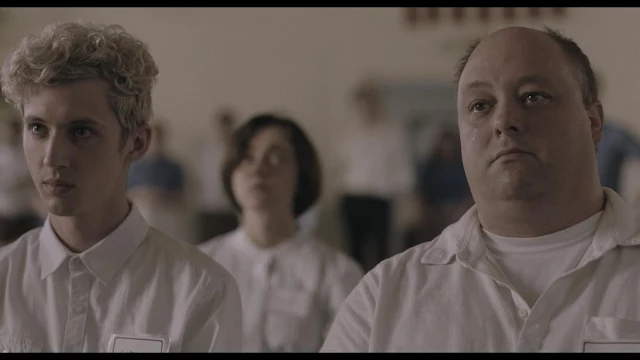A blog formerly known as Bookishness / By Charles Matthews
"Dazzled by so many and such marvelous inventions, the people of Macondo ... became indignant over the living images that the prosperous merchant Bruno Crespi projected in the theater with the lion-head ticket windows, for a character who had died and was buried in one film and for whose misfortune tears had been shed would reappear alive and transformed into an Arab in the next one. The audience, who had paid two cents apiece to share the difficulties of the actors, would not tolerate that outlandish fraud and they broke up the seats. The mayor, at the urging of Bruno Crespi, explained in a proclamation that the cinema was a machine of illusions that did not merit the emotional outbursts of the audience. With that discouraging explanation many ... decided not to return to the movies, considering that they already had too many troubles of their own to weep over the acted-out misfortunes of imaginary beings."--Gabriel García Márquez, One Hundred Years of Solitude
Search This Blog
Showing posts with label Joel Edgerton. Show all posts
Showing posts with label Joel Edgerton. Show all posts
Thursday, September 19, 2019
Boy Erased (Joel Edgerton, 2018)
Boy Erased (Joel Edgerton, 2018)
Cast: Lucas Hedges, Nicole Kidman, Russell Crowe, Joel Edgerton, Troye Sivan, Britton Sear, Xavier Dolan, Joe Alwyn, Flea, Cherry Jones. Screenplay: Joel Edgerton, based on a book by Garrard Conley. Cinematography: Eduard Grau. Production design: Chad Keith. Film editing: Jay Rabinowitz. Music: Danny Bensi, Saunder Jurriaans.
"Problem drama" is a kind of oxymoron. Problems have solutions; dramas have plots. In Boy Erased, the problem is "conversion therapy," the use of supposed psychological methods to convert gays and lesbians into heterosexuals. The solution, one adopted in the more forward-thinking parts of the United States, is to discredit and ban such attempts. Drama, on the other hand, depends on ambiguity and suspense, on shrewdly drawn characters, and on emotional and intellectual conflict. Boy Erased tries to get around the limitations of trying to tell a nuanced story about conversion therapy by casting highly skilled actors like Lucas Hedges and Nicole Kidman and Russell Crowe, who can provide the subtlety and ambiguity that the plot doesn't quite provide. Joel Edgerton's screenplay -- like his performance as the head "therapist" -- is just a little too careful, a little too afraid of tipping over into melodrama to be completely satisfying. The film doesn't want to portray its God-fearing Christians as villains, but only as people blinkered by their faith. It only suggests that the therapy center is a money-grubbing scam. The result is a tepid middle-of-the road movie that's mostly preaches to the choir. With a keenly critical point of view, Boy Erased could have been a piercingly revelatory film, not a watered-down docudrama made watchable by starry performances.
Wednesday, August 24, 2016
Black Mass (Scott Cooper, 2015)
Having long ago effaced the stigma of being a teen heartthrob on the TV series 21 Jump Street (1987-90), and having earned three Oscar nominations, Johnny Depp no longer has to prove himself as an actor. But his recent career has been marked by disastrous flops -- Alice Through the Looking Glass (James Bobin, 2016), Mortdecai (David Koepp, 2015), The Lone Ranger (Gore Verbinski, 2013) -- and too much reliance on the Pirates of the Caribbean series. Black Mass is a partial redemption for those failings, mostly because Depp becomes the best reason for seeing it. Apart from Depp's cruel and icy portrayal of Boston mobster James "Whitey" Bulger, there's not enough heft and momentum to Scott Cooper's film. It takes a fascinating story of the interrelationships between Bulger's mob, the FBI, and the government of the Commonwealth of Massachusetts and reduces it to a routine and often derivative gangster movie. Cooper and screenwriters Mark Mallouk and Jez Butterworth borrow shamelessly from GoodFellas (Martin Scorsese, 1990) in a scene in which Bulger playfully terrorizes a colleague in the same way Joe Pesci's character -- "What do you mean, I'm funny?" -- frightens Ray Liotta's Henry Hill. The film often seems overloaded with good actors -- Joel Edgerton, Benedict Cumberbatch, Kevin Bacon, Peter Sarsgaard, Jesse Plemons, Adam Scott, Julianne Nicholson -- in parts that don't give them enough to do. And while it was filmed in Boston, it misses the opportunity to capture the Boston neighborhood milieu in which Whitey, his politician brother Billy (Cumberbatch), and FBI agent John Connolly (Edgerton) grew up, something that was done to much better effect in films like Mystic River (Clint Eastwood, 2003), Gone Baby Gone (Ben Affleck, 2007), and even Good Will Hunting (Gus Van Sant, 1997). Still, the cold menace projected by Depp's Bulger is haunting, enhanced by the decision to provide the actor with ice-blue contact lenses that pierce through the shadows and give him an air of otherworldly surveillance.
Subscribe to:
Comments (Atom)



















_poster.jpg)